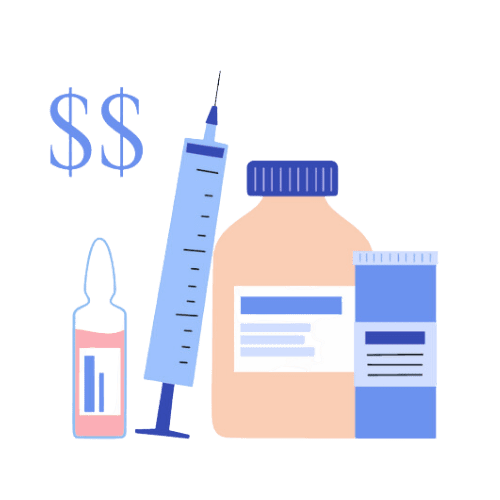Egg Freezing & IVF in Australia
At Zora Health, you are our top priority. We’re here to guide you through every step of your egg freezing or IVF journey — helping you understand your options, and make confident, informed decisions about your care and costs.
Egg freezing, also known as mature oocyte cryopreservation, is a method used to save women’s ability to get pregnant in the future.
In vitro fertilisation (IVF) is a procedure used to help with fertility, prevent genetic problems and assist with the conception of a child

Spread out the cost of treatment over 12, 24, and 36 months to avoid large upfront payments and reduce financial burden.
LEARN MORE
Accessible & affordable fertility care in Australia
Egg Freezing and IVF in Australia
Australia is famous for its high standard of living and for its breathtaking coasts and landscapes. It is poised for a boom in medical tourism because of its outstanding healthcare system. The country achieves this through strategies implemented by the National Healthcare Agreement of the Council of Australian Governments. More and more international patients flock to Australia's advanced IVF clinics for in vitro fertilisation because of its high standards on technology, patient safety, research, and strict regulations.
Medical Tourism in Australia
The number of medical travellers in Australia has been increasing over the years. After all, Australia has several Nobel prize winners in the medical field. Its approach to healthcare is holistic, as it balances modern medicine with indigenous and alternative practices. This offers medical tourists multiple procedures and services to choose from. To avail, you need a Subclass 602 Medical Treatment Visa to go to Australia to have second opinions from expert doctors, elective surgeries, and treatments using advanced scientific techniques. The Department of Home Affairs determines how long one can stay based on the treatment plan.
Australia's medical standards are at par with those of first-world countries like the United Kingdom and the United States. Its medical research and development has reached greater heights as it focuses on digital health and dedication to patient safety and care using state-of-the-art technology. First-rate medical schools consistently turn thousands of knowledgeable graduates into highly skilled professionals in the medical field.
Government-supported policies for healthcare
The Australian government continuously bolsters its healthcare industry through systematised policies. Hospitals and surgery centres undergo a step-by-step process to pass accreditation through the Australian Commission on Safety and Quality in Health Care. The Australian Council on Healthcare Standards collaborate with private and public hospitals to protect the welfare of patients. Lastly, all practitioners, including GPs, must receive accreditation from the Australian Health Practitioner Regulation Agency and the Royal Australian College of General Practitioners.
The best hospitals are located in the cities of Sydney, Melbourne, and Brisbane. Many clinics already offer medical tourism packages that include both treatment and convenient accommodation. It's also easy to get around Australia by taking public transportation or taxis.
Enjoy relaxation before and after treatment
For relaxation, many patients visit tourist spots before or after having their procedures in the three major cities for medical tourism. They visit the Sydney Opera House and Harbour Bridge in Sydney. They go to Melbourne for sports venues like stadiums and pools. They grab the opportunity to see koalas with the bonus of kangaroos, wombats, and Tasmanian devils in the Lone Pine Koala Sanctuary in Brisbane. Outside the cities, the Great Barrier Reef is great for those who want to watch whales and dolphins, snorkel, or scuba dive. The Gold Coast is perfect for beach bums and rainforest retreat aficionados.
Australia is a safe country, with a low crime rate and stable government. Prepare for your visit by packing waterproof sunscreens, hats, and sunglasses. The UV levels in Australia are high throughout the year but it gets much higher during the Australian summer season which runs from December to February. It's safe to swim on patrolled beaches and only within the red and yellow flags that lifesavers monitor.
Australia has four public transport options. You can either take a train, such as the Sydney Train, or take a tram, a ferry, or a bus.
National support for increasing population
Fertility preservation is very much welcome in Australia to address its low population growth. Professor Luk Rombauts cites that IVF children contribute to the nation's economic progress as its future taxpayers. An article in the Sydney Morning Herald says that more Australian women choose to freeze their eggs because they either don't have partners or prioritise their careers and other personal pursuits. They comprise a third of all cycles of egg-freezing in Australia. This points to the trend that more Australians are building families in a non-traditional way.
According to the 2021 Census Report of the Australian Bureau of Statistics, there are over 300 languages spoken in Australia. Aside from English, the top 10 languages spoken are Mandarin, Arabic, Vietnamese, Cantonese, Punjabi, Greek, Italian, Tagalog, Hindi, and Spanish.
Benefits of Doing Fertility Treatments in Australia
Fertility centres in Australia impose infection control protocols to ensure that patients are safe throughout their IVF journey. Leading fertility specialists conduct electronic health documentation to avoid miscalculations and inaccuracies in infertility treatment.
The current success rate of an IVF cycle is 23.1%. According to a report from the Fertility Society of Australia and New Zealand, this success rate is due to the frozen cycle from embryo freezing and thawing up to putting it back into the woman's womb. Out of all IVF babies, the percentage of them coming from frozen embryos is 65%.
Australia is also more supportive of unmarried individuals and unorthodox couples. In 2020, more than 10% of women who had IVF treatment were single and almost 4% were in relationships with the same sex.
Australian fertility preservation clinics utilise the most advanced science such as artificial intelligence for selecting the embryos that would be best to transfer, time-lapse technology for monitoring and examining embryos every 10 minutes, and storing embryos under the best pH and temperature conditions.
IVF cycles and Frozen Embryo Treatments (FET) are both available at private and public hospitals. However, only Australian residents with Medicare who are referred by their physicians are accommodated in publicly supported IVF centres.
Cost Considerations / IVF and Egg Freezing Costs to Consider
The cost of an IVF treatment at a publicly supported clinic is about AUD$1,000 while a cycle of Frozen Embryo Treatment (FET) is around AUD$765. Patients who would use donor gametes have to pay an extra fee.
An international patient would typically shell out AUD$12,000 up to AUD$15,000 for an IVF cycle in a private fertility specialist clinic. The total cost of egg freezing ranges from USD$2,500 to USD$9,000. It can further be broken down to USD$1,100 up to USD$7,000 for a single cycle, USD1,000 to USD$2,000 for medications, and USD$200 to USD$450 for yearly oocyte storage.
Other Considerations Before Starting Your Fertility Treatment in Australia
Why Choose Australia for Your Fertility Treatment
The most important factor in choosing Australia for your fertility treatment is that there are no restrictions and regulations for anyone. Due to ample government support, IVF success rates are extremely high. Egg collection and IVF services use artificial intelligence and time-lapse technology. Modern facilities provide the utmost conditions for single embryo or fertilised egg storage. Furthermore, accommodations and travel destinations abound throughout the continent, making your fertility journey a breeze.
Ready to do your egg freezing & IVF journey in Australia?
Meet Our Network of
Experienced Fertility Specialists

You deserve the very best.
That's why we’re here to support you — whenever you need it.
1
Personalised Care Navigation
Expert guidance to choose the right care provider and navigate the process, costs, & regulations.
2
Seamless, All-in-One Care
Consultations, diagnostics, telehealth, education, & treatment referrals are available on one platform.
3
Trusted, Reliable Resources
Gain clarity & confidence with verified information. Save time, reduce stress, & eliminate endless research.
Global reach, unparalleled service

"Clear pricing - clarity & support from start to end."
"I love Zora Health for their simple, transparent pricing. It was a relief not to worry about unexpected fees or hidden costs. They made the entire process stress-free and easy to understand, which allowed my husband and I to focus on what mattered most - my family's future."
Syarifah, 27 & Indra, 29

"I couldn't believe that I can choose my own doctor and enjoy extra benefits for the same price."
"I had a preferred doctor overseas that my girl friends recommended. He is part of Zora’s clinic network, but I was interested in Zora’s support and perks. After speaking to Zora, they assured me I wouldn’t pay extra. Zora managed the whole process - from personalised guidance to answering my queries about legalities."
Nina, 32, Single

"The financing options lifted a huge weight off my shoulders."
"Zora’s instalment plans were a true lifesaver. I was so grateful for their flexible and affordable options. I have been thinking about preserving my eggs as a form of “insurance” but didn’t want to pay a big lump sum upfront as I am saving for a house. The instalment plan helps me manage my finances better.”
Elaine, 32

"I never felt alone in my fertility journey."
"After failing previously, we were very anxious and were not sure what to expect. They guided us through the process and cared for us every step of the way. My treatment at the clinic was long, and sometimes it was emotionally draining, but having a fertility coach made us feel better and more prepared. As busy professionals, we appreciate the convenience of scheduling appointments through Zora. I have recommended Zora to all our friends."










